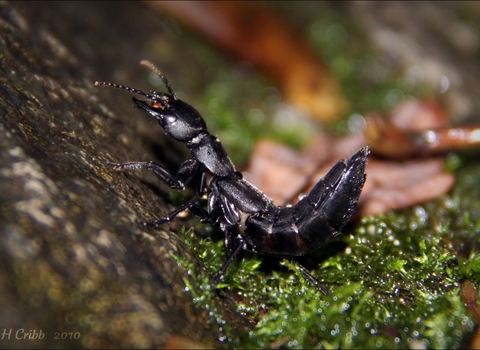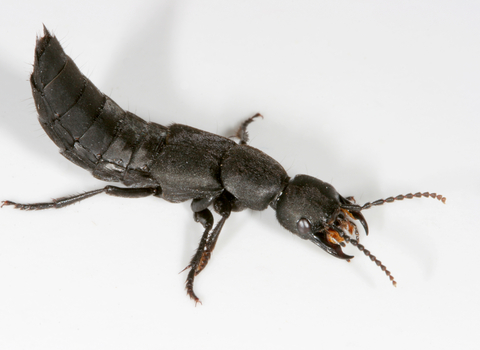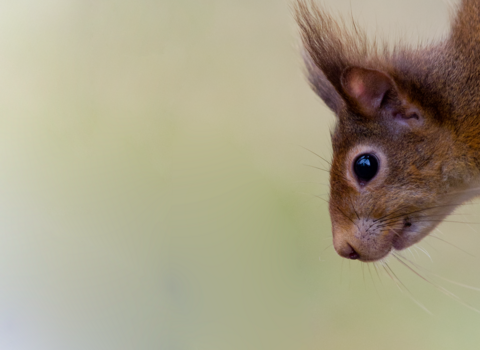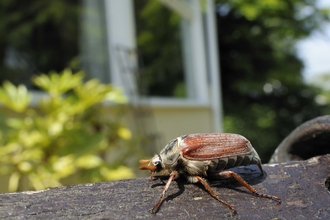
Devil's Coach Horse ©Russ Cribb

Devil's coach horse ©Paul Richards
Devil's coach horse
A ferocious and fast predator, the Devil's coach horse beetle hunts invertebrates after dark in gardens and on grasslands. It is well-known for curling up its abdomen like the tail of a scorpion when defending itself.
Scientific name
Ocypus olensWhen to see
April to OctoberSpecies information
Category
Statistics
Length: 2.8cmConservation status
Common.






